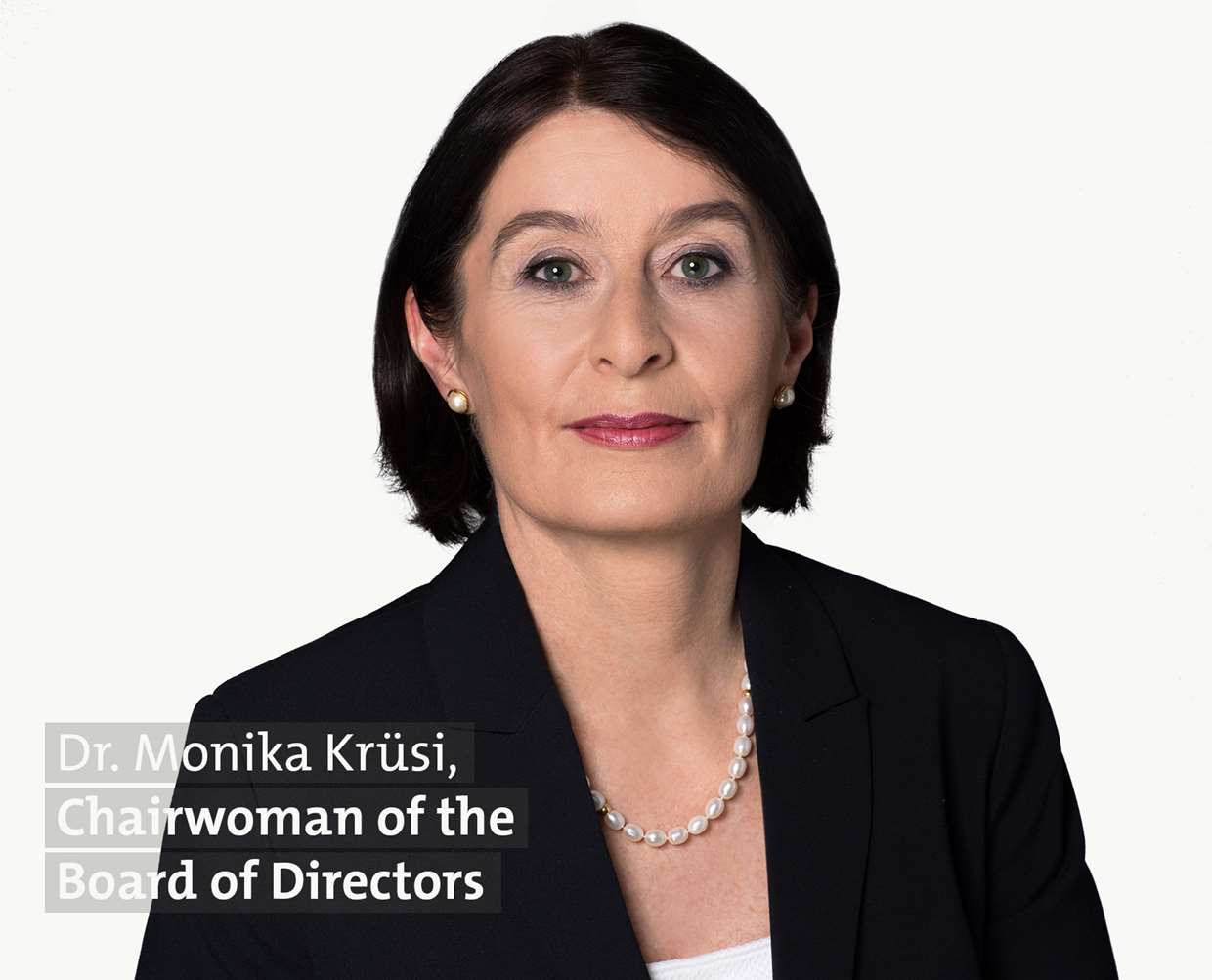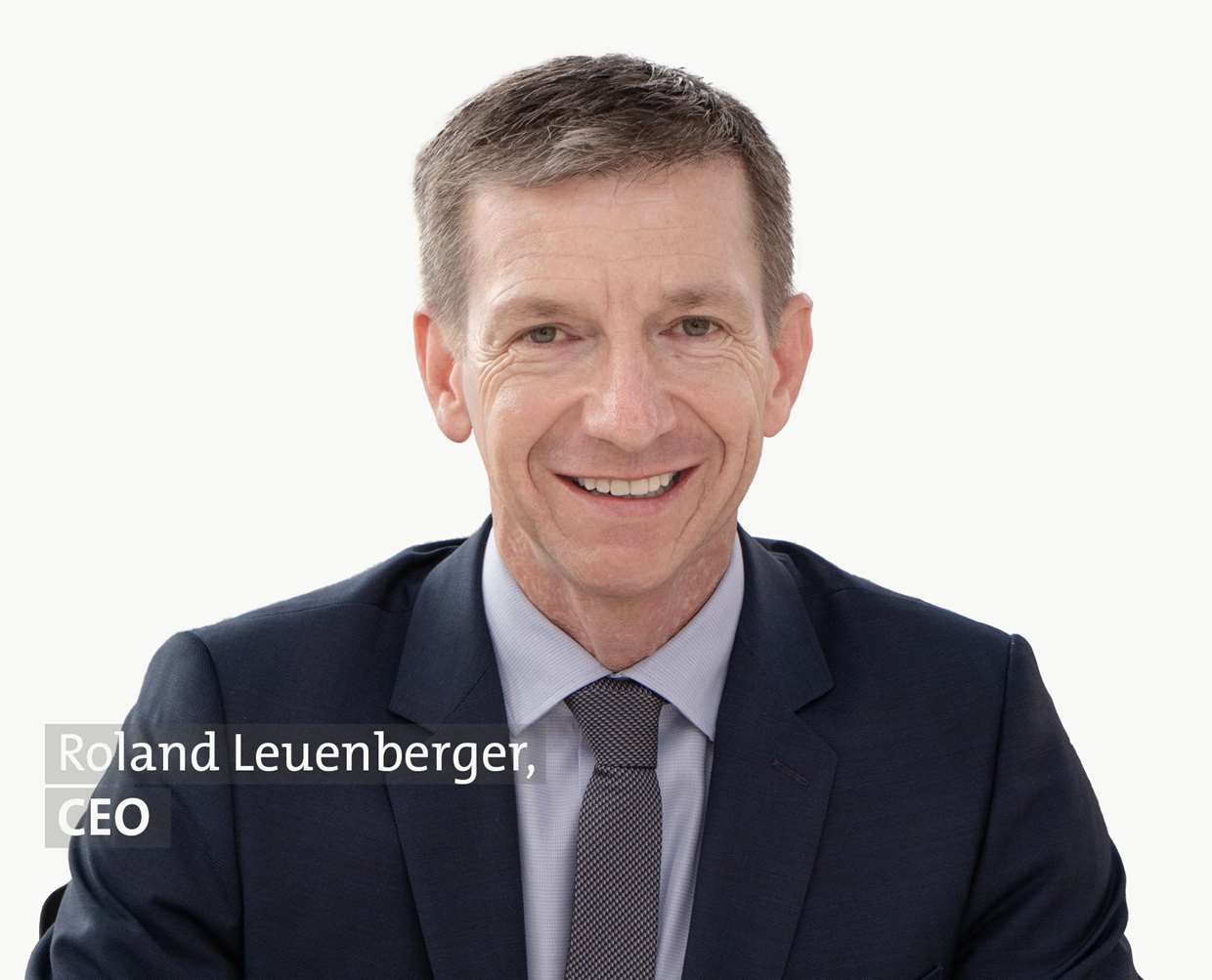
Foreword from the chairman of the board of directors and the CEO


REPOWER SEES OPERATING INCOME ALMOST DOUBLE
The year 2019 was shaped by negative price developments and a high level of volatility on the electricity markets. Repower defied these conditions, and thanks to the right strategy was able to post excellent results in asset management and trading. In 2019 Repower Italy recorded the highest operating income (EBIT) in its history. At 65.2 million francs, Repower Group EBIT was almost double the previous year’s.
Environment
As expected, the market environment remained challenging in 2019, with the EUR/CHF exchange rate not developing in Repower’s favour. Delivery prices were under heavy pressure last year, with baseload electricity prices in Switzerland 21.6 per cent lower than the prior year. In 2019 the price of baseload electricity was around EUR 40.9/MWh in Switzerland and EUR 52.3/MWh in Italy. The market was influenced by various factors: mild winter temperatures, and strong hydropower and wind generation combined with low gas and coal prices. Plans to introduce a capacity market regime from 2022 have led to uncertainty in the Italian market, and it is still difficult to gauge the impact of this on future results at the Teverola combined cycle gas turbine plant. The goal of the capacity market will be to assure grid stability and security of supply in the medium to long term and thus facilitate the political goal of increasing the generation of renewable electricity. The anticipated full liberalisation of the energy market for end consumers in Italy has been postponed another 18 months to 2022.
Results
Despite the difficult market conditions, Repower saw another improvement in operating results in 2019. At CHF 1.9 billion, 2019 total operating revenues were 7.3 per cent down on the previous year’s figure. At 65.2 million francs operating income (EBIT), by contrast, was significantly higher than in 2018 – with an outstanding year in Italy making a major contribution.
Repower proved that with the right strategy it is also able to operate profitably in a difficult market. A skilful hedging and management strategy enabled the company to post excellent results in asset management and trading. Hydroelectric production was significantly better in 2019 than the year before. The Swiss section of the Campocologno–Tirano merchant line, which this year again made a gratifying contribution to EBIT, had to be transferred to Swissgrid in October 2019, and in future will no longer be reflected in Repower’s results. In the year under review Repower Italy’s efforts to optimally harness the balancing energy market paid off, helping it to an excellent return in this area.
Despite the overhaul of the Teverola combined cycle gas turbine plant, which was conducted as planned during the fourth quarter, the facility again delivered very good results in 2019, in excess of the budgeted figures. The subsidiary Repower Renewable held its own in the market, and at the end of 2019 was at the previous year’s level with 164 GWh of electricity generated. This result underscores the high quality of the assets acquired in 2018.
The equity ratio is a solid 45 per cent. There was a significant year-on-year increase in cash flow from operating activities to CHF 126 million; this figure exceeded investment many times over.
Thank you
This excellent result could only be achieved thanks to dedicated employees who believe in the company and work to achieve its goals on a daily basis. We would like to express our warm thanks for their contribution. We would also like to thank our customers, partners and shareholders for the trust they have placed in us.
Outlook and objectives
Market conditions remain extremely challenging and volatile. Radical change in the energy industry, low energy prices and the impact of COVID-19 on the economy will continue to occupy us for some time to come.
The changes in the energy arena are real and can already be felt. In Germany many nuclear power stations have already been phased out, and the first coal-fired plant is to be removed from the grid in 2020. Not only this, but in 2019 the coal commission agreed to phase out brown coal (lignite) by 2038. Italy also intends to shut down all its coal-fired facilities by 2025, and France is planning to do so by 2022. In December 2019 the Mühleberg nuclear plant in Switzerland was removed from the grid. All the other nuclear plants can continue to generate electricity for as long as they are safe.
Repower will continue to systematically drive the generation of electricity from renewable resources. The priority in the next few years will be to renovate its hydropower assets in Switzerland, particularly the entire Valposchiavo chain, including the complete refurbishment of the Robbia plant, and to expand generation of solar and wind power in Italy. Thanks to the Teverola combined cycle gas turbine plant, last year Repower was able to make a major contribution to grid stability in the Italian Centro Sud electricity zone. However, given the introduction of a capacity market regime for balancing energy, there is no guarantee that Teverola will continue to make the same contribution to financial earnings in the years to come.
Repower will also drive its partner strategy further ahead in the future. The establishment this year of EVUlution AG with (at present) five partners marks a major step forward in terms of digital solutions “made by the pros for the pros”, underscoring Repower’s ambition of taking a leading role in innovation.
Especially in these times of coronavirus, Repower has demonstrated that it can build on a strong corporate culture, a high level of employee identification, and solid operational processes. Repower will now benefit from the balance sheet built up over recent years, a strong equity ratio and high levels of liquidity. Even though it rates growth prospects as intact overall, given low energy trading prices and the impact of the coronavirus on the real economy, Repower does not expect its 2020 business performance to match the prior year results.

